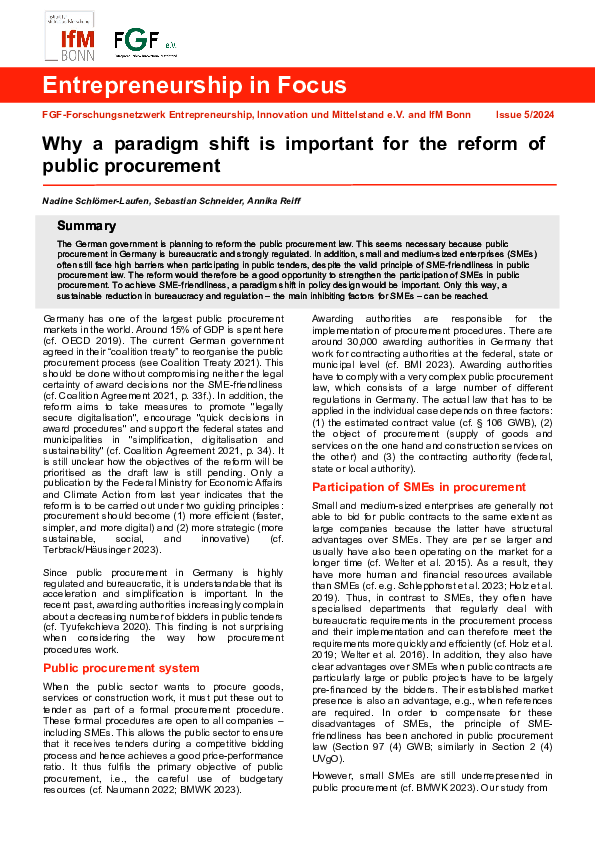Starting point/problem statement
In Germany, the public sector is one of the largest purchasers of goods, services, and construction services, with estimated annual expenditures of around 500 billion euros (cf. OECD 2019). To ensure fair, rule-based, and transparent competition for these public contracts at the federal state, and municipal levels, a series of legal requirements, such as procurement directives and administrative regulations, must be adhered to. Currently, the Federal Ministry for Economic Affairs and Climate Protection (BMWK) is taking the lead in developing a procurement transformation package, aiming to expedite procurement processes, reduce costs for companies, and increase the participation of medium-sized enterprises
Research Objective/Approach
The aim of this project is to examine the impact of the planned reform of procurement law on medium-sized enterprises. The analysis will focus on the bureaucratic costs associated with participating in public tenders These costs will be illustrated through three example companies that are as similar as possible but of different sizes, participating in comparable tenders. For each of these sample companies, the individual time and financial efforts required to fulfill bureaucratic obligations in the context of public tenders will be determined. At the same time, information about the subjectively perceived bureaucratic burden will be obtained through background interviews in the companies. Both the objective and subjective bureaucratic burdens will be determined before the implementation of the procurement law reform, expected in mid-2024. These findings will serve as a benchmark for assessing the impacts of the reform and as a benchmark for evaluating the impact of the reform. With a temporal gap after the reform, expected around the year 2026, the mentioned bureaucratic costs will be collected once again, and through a comparison, it will be determined whether the sample companies have indeed experienced relief.

